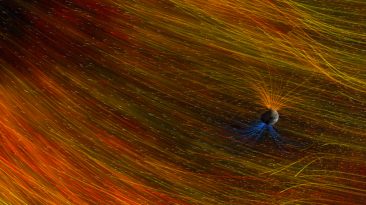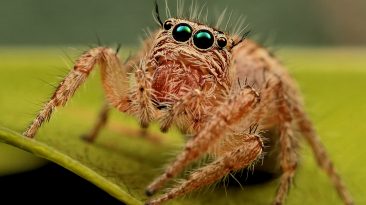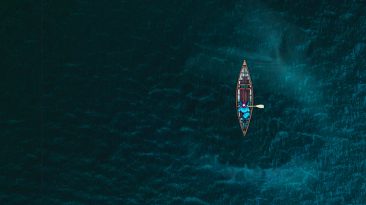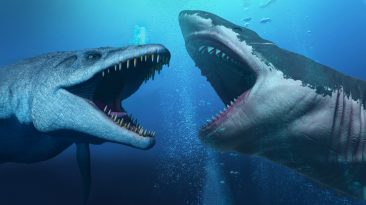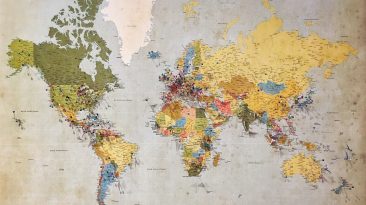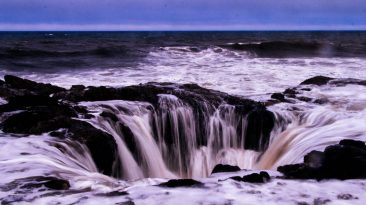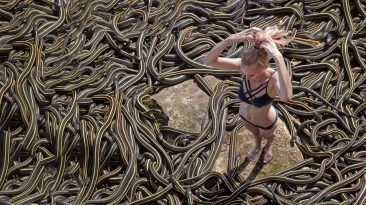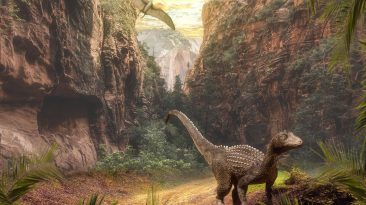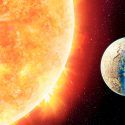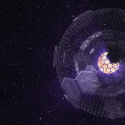Isn’t it beautiful? Look at this cutie! Enjoy it while you can. Because if we don’t act right now, in less than 80 years, we won’t be able to appreciate it anymore. Your great-grandchild will only experience it in books, or by watching nature videos. Isn’t that scary?
Scientists predict that the oceans’ oxygen levels could drop 3 to 4% by the year 2100. As that happens, oceans will undergo drastic losses of biodiversity, and entire ecosystems could be wiped out. Why is oxygen disappearing? How could this affect us? Is there anything we can do to stop this?
Oceans losing 3-4% of their oxygen may not sound very threatening, but it’s a big deal. These massive bodies of water cover most of Earth. We know that about 200 million years ago, oxygen was depleted in the oceans. This led to a massive extinction of species.
With oxygen levels dropping in the oceans again, could we face the same loss of ocean life? And if you like to eat lobster, shrimp, or fish, will you have enough, or any, to eat in the future?
Speaking of food, farmers use fertilizers that are rich in nutrients. Rains wash them into rivers, which then carry them to the oceans. In coastal waters and estuaries, those extra nutrients increase plant and algae growth, and this is called eutrophication.
This causes an environment with low oxygen, called hypoxia. And when the oxygen’s gone, the water is called anoxic. That leads to fish kills, and dead zones that cannot sustain life. It can increase the oceans’ acidity too.
Can you see what’s happening? It is a massive domino effect with a deadly outcome. And sea life and biodiversity are being hurt by it already. Today, some male fish produce sperm less capable of movement as the oceans’ oxygen levels decline. And low sperm counts are not going to save our species.
Some species, including the Humboldt squid, are moving to new feeding grounds where the water is oxygenated. And that’s a big problem. The Humboldt squid used to inhabit the waters from South America to Mexico, and sometimes California. But now, they’ve been found off the coast of Alaska. And so are the fish they feed on.
The squid are now out-competing for food that tuna and sharks typically feed on in this area. All this is disrupting the delicate balance of the food web, and will lead to massive amounts of fish loss and death.
Here’s another problem. Some sea creatures would surface from the depths looking for oxygenated water, and eventually, they would die caught in human nets. Big fish would disappear first as they need more oxygen to survive. As this continues, we’d likely have to say goodbye to dolphins, whales, and all of the beautiful mammals that currently live in the oceans.
And as we said goodbye to big fish like tuna, many people would lose their food and income. Commercial fishing industries are already struggling, and will eventually close. If you live on an island, there’s a limited amount of room to grow crops and raise animals.
So many island nations depend on the oceans for food. What would happen to Japan, Indonesia, the Philippines, or the Caribbean islands if there were no more fish? But what can we do to help our oceans? Global warming is one cause of deoxygenation. Reducing our greenhouse gas emissions is the one thing we can do, and need to do, to protect our planet’s ecosystems. And the overuse of fertilizers in agriculture is something that we should reconsider as well.
Now that you’re more aware of the dangers affecting our oceans, let’s think about how else we’re affecting our oceans. Plastic. Yup, tons of plastic is in the oceans.
Sources
- “Hypoxia”. 2021. oceanservice.noaa.gov.
- “Anoxic and hypoxic events”. 2021. Ozcoasts.
- “Study of ancient rocks suggests oxygen depletion in oceans led to end-Triassic mass extinction”. Bob, Yirka. 2021. phys.org.
- “The Ocean Is Running Out Of Breath, Scientists Warn”. Poppick, Laura. 2019. Scientific American.
- “Oceans Are Losing Oxygen—And Becoming More Hostile To Life”. Craig, Welch. 2021. Science.
- “Ocean deoxygenation”. 2019. IUCN.
- “Oceans losing oxygen at unprecedented rate, experts warn”. 2019. The Guardian.












